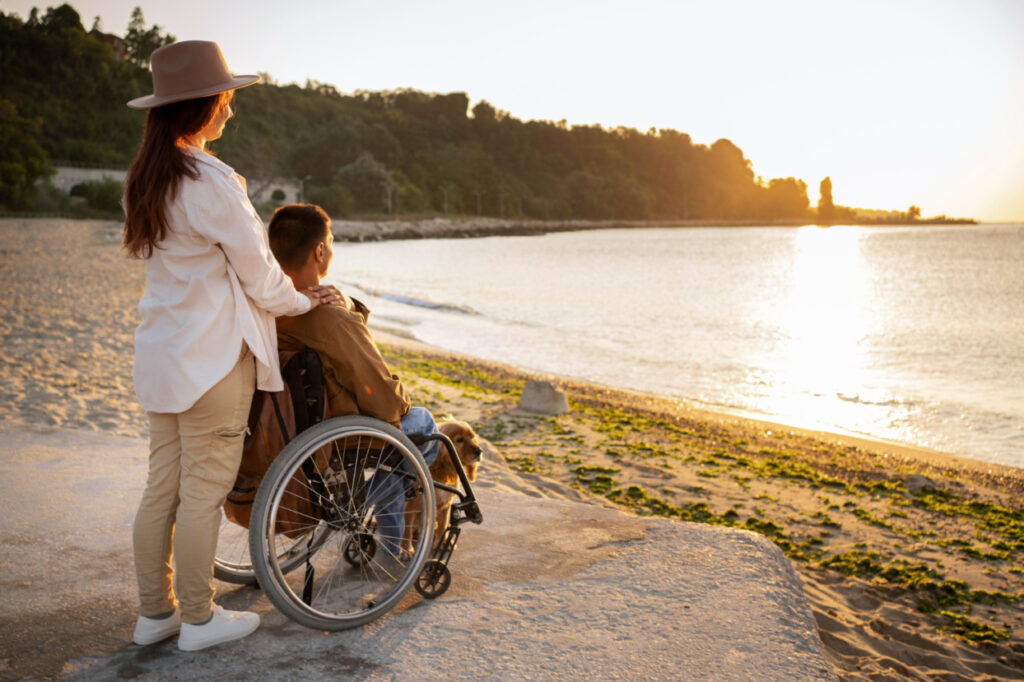The National Disability Insurance Scheme (NDIS) is an Australian government initiative supporting people with disabilities. It aims to improve the quality of life of people with disabilities by giving them access to the services they need to live independently and participate fully in society.
The NDIS has been a game-changer for many middle-aged people with disabilities who require in-home disability assistance. This article will explore how the NDIS has helped people with disability receive care.
What Is the National Disability Insurance Scheme?
The NDIS is a comprehensive disability support scheme that provides people with disabilities access to various services and support. These services and support include in-home disability care, assistive technology and equipment, community support, therapy and counseling, and much more. The NDIS aims to provide people with disabilities with the opportunity to live fulfilling lives, achieve their goals and participate in society.
To be eligible for the NDIS, a person must have a permanent disability significantly affecting their ability to participate in everyday activities. They must also be Australian citizens or permanent residents under 65. Once a person is deemed eligible for the NDIS, they can access a range of services and support that are tailored to their individual needs.
How the NDIS Supports In-Home Disability Care and Assistance
The NDIS provides funding for in-home disability care and assistance through its support packages (ISPs). These packages are tailored to the individual needs of each person with a disability and can include funding for in-home care and assistance. The NDIS also provides funding for assistive technology and equipment that can assist with in-home care and assistance, such as mobility aids, shower chairs, and hoists.
In-home disability care and assistance allow them to live independently in their homes, improving their quality of life and enhancing their sense of autonomy. It also reduces the need for hospitalisation or institutionalisation, which can be costly and disruptive. And it can provide a sense of security and safety for people with disabilities, knowing they have access to support and assistance when needed.
Application Steps for NDIS
- Contact the NDIS – After checking your eligibility, the next step is to contact the NDIS. Call the NDIS on 1800 800 110 or visit their website to begin the application process.
- Complete the Access Request Form – The NDIS will send you an Access Request Form to complete. This form will ask for information about your disability, the support and assistance you require, and how your disability affects your daily life.
- Provide Supporting Evidence – Along with the Access Request Form, you must provide supporting evidence, such as medical reports, assessments and test results. This evidence will help the NDIS assess your eligibility and determine the level of support and assistance you require.
- Attend a Planning Meeting – Once your application has been assessed and approved, you will be invited to attend a planning meeting with an NDIS planner. This meeting will be an opportunity to discuss your goals and the support and assistance you require. You can bring a support person or advocate this meeting.
- Develop a Support Plan – Based on your goals and needs, the NDIS planner will develop a support plan that outlines the funding and support you will receive. You will have the opportunity to review and approve this plan before it is finalised.
- Choose an NDIS Provider – Once a middle-aged person with a disability has an approved ISP, they can choose an NDIS provider to deliver their in-home disability care and assistance. They can choose a provider that best meets their individual needs and preferences. Providers must be registered with the NDIS and meet certain quality standards.
Conclusion
The NDIS has been helpful to people with disabilities who require in-home disability care and assistance. It provides funding for individual support packages that include in-home care, assistance, and assistive technology and equipment. This allows people with disabilities to live independently in their homes, improve their quality of life and participate fully in society.
Looking for a trustworthy NDIS provider in Sydney? OSAN ABILITY has got you covered. Our care workers are certified and we make sure to find you the ideal one for support. For more information, feel free to contact us.










